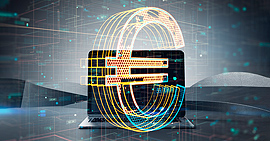Do you know what a national central bank is?
10/12/2024
In any economy, there are constant transactions that have their financial derivative. Thus, when we buy or sell goods or services, we exchange them for money. And the one who guarantees that everything related to money works is the national central bank, from its own issuance and circulation to the determination of the price of that same money, which we call interest rates. Therefore, the role of this institution has a fundamental impact on the lives of all of us.
Central banks are very different from the commercial banks where we deposit our savings; they do not offer current accounts or loans to the public but operate as a bank for institutions which go to the central bank’s window to borrow or deposit their liquidity in the form of bank reserves. It is common for them to also supervise solvency and stability of the financial system. This is the case, for example, of the Banco de España.
Using a more academic definition, a national central bank is a public institution that is mainly responsible for defining and implementing the monetary policyAbre en ventana nueva of its area of activity, with the primary objective of maintaining price stability in that area and achieving stable economic growth, as well as other functions that may vary between different jurisdictions.
Some of those other functions that a national central bank can carry out are the following:
- Fix interest rates as part of their monetary policy.
- Issuing banknotes and coins.
- Perform foreign exchange operations, as well as own and manage official foreign exchange reserves.
- Promote the smooth functioning of payment systems for banks and negotiated financial instruments.
- Contribute to the stability of the financial system by monitoring the solvency of commercial banks to ensure that lenders are not taking excessive risks.
- Inform the public about the economy through the production and publication of statistics.
In the eurozone, we have the European Central Bank (ECB), created in 1998 to implement monetary policy in our region. Today, the ECB is the central bank of countries that use the euroAbre en ventana nueva as their official currency. More detailed information on the ECB and its tasks can be found here.Abre en ventana nueva
“Disclaimer: Please note that this is a translation of the original in Spanish that has been obtained using eTranslation (the machine translation tool provided by the European Commission), with the intention of giving you a basic idea of the content in English until a human translation becomes available. The Banco de España accepts no liability whatsoever in connection with this translation.”



